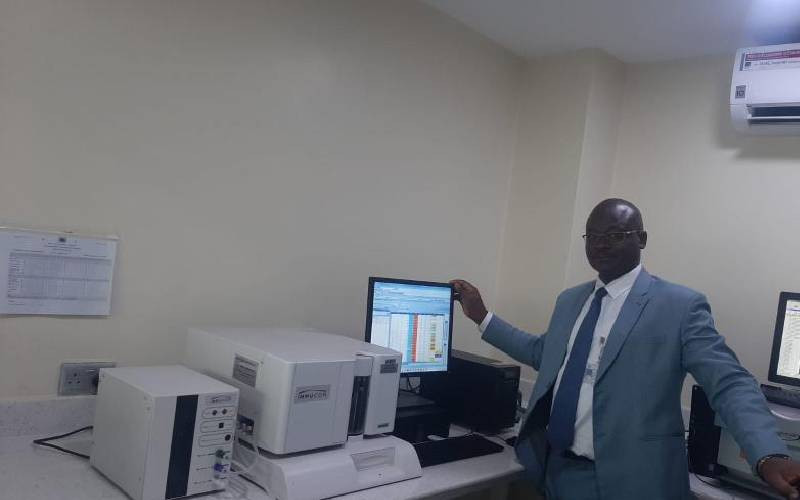
A few years ago, the mention of a kidney transplant meant a flight overseas for both the donor and the recipient, as well as an expensive budget that included air tickets, lodging, and hospital bills.
Without at least Sh2 million, one would be forced to raise funds, even selling property or holding a fundraiser, to cover the exorbitant cost of the transplant.
That was back then. Kenyatta National Hospital's Renal department has been performing the procedure for exactly one year now, putting smiles on the faces of Kenyans who would have become poor as a result of the transplant.
 The Standard Group Plc is a multi-media organization with investments in media
platforms spanning newspaper print
operations, television, radio broadcasting, digital and online services. The
Standard Group is recognized as a
leading multi-media house in Kenya with a key influence in matters of national
and international interest.
The Standard Group Plc is a multi-media organization with investments in media
platforms spanning newspaper print
operations, television, radio broadcasting, digital and online services. The
Standard Group is recognized as a
leading multi-media house in Kenya with a key influence in matters of national
and international interest.











